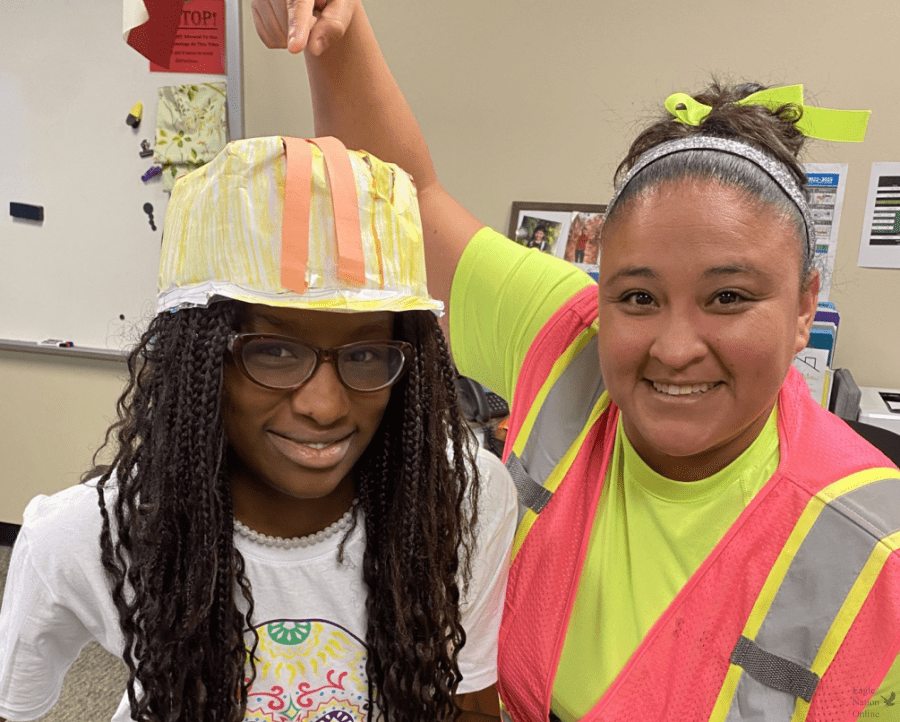Column: Hope Week: What it really means and why it matters
Decked out to follow the construction theme of Hope Week day two, teacher Renna Bersosa admires the dedication of her student, Veronica Fatiregun, who made her own construction hat from paper. “The best most precious construction worker on campus today,” Bersosa said in a tweet. “No excuses for lack of school spirit, she made her own hard hat #suicidepreventionweek.”
September 9, 2022
As Hope Week comes to a close, it is important to keep in mind the meaning behind the dress up days and fun decorations we see at PHS. Hope week covers more than a school spirit week: it provides a reminder that you are not alone.
In every classroom, students and teachers are facing battles with mental health constantly, impacting the way people think, act, and feel. According to the CDC, more than 50% of Americans in the U.S. are faced with the expection to be diagnosed with a mental illness or disorder at some point.
Mental illness can impact people from all ages, races, sizes and appearances and can be unrecognizable for many. Impacting my friends, my family, and even myself, mental illness has proved a great prevalence in my life, showing me the importance of awareness of signs, symptoms, and precautions to take regarding mental health.
While mental illness can often be unnoticeable, common symptoms of mental illness to look out for in yourself and others include:
-
Feeling down for a while
-
Extreme swings in mood
-
Withdrawing from family, friends, or activities
-
Low energy or problems sleeping
-
Often feeling angry, hostile, or violent
-
Feeling paranoid, hearing voices, or having hallucinations
-
Often thinking about death or suicide.
If you or anyone you know experiences symptoms such as these or other suicidal feelings, please reach out to the suicide and crisis hotline anytime of the day at: 9-8-8 or text tip411 to send anonymous tips via text.
If you find yourself feeling stressed, anxious, or overwhelmed, coping requires a process unique to each individual which can help you find relaxation and ease. For methods of coping to consider or give a try, consult this list you may have seen during advisory.
Mental health effects more than just your emotional health, it has the power to worsen or cause physical health conditions including diabetes, heart disease, and stroke, having no single cause. Life poses many obstacles to all of us but don’t forget to take care of yourself above all others. If you find yourself struggling with mental health for any reason, please reach out to a loved one, friend, or trusted adult.
Remember, you are not alone.



















